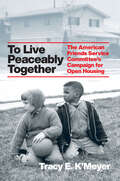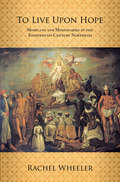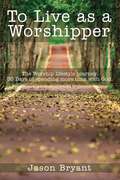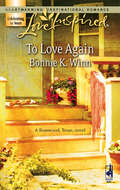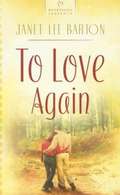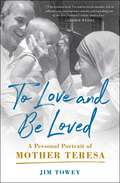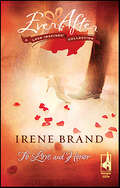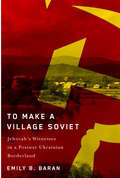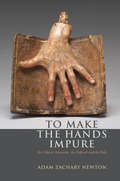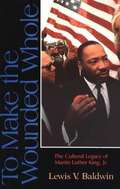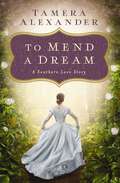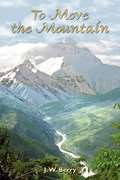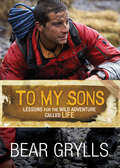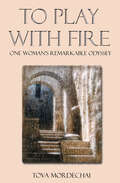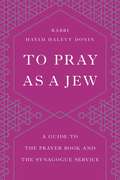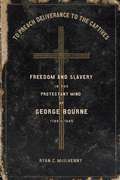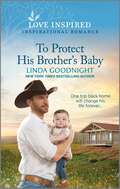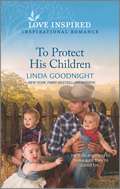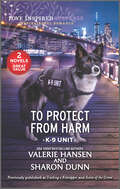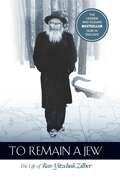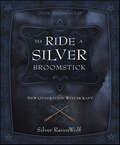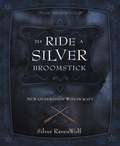- Table View
- List View
To Live Peaceably Together: The American Friends Service Committee's Campaign for Open Housing (Historical Studies of Urban America)
by Tracy E. K'MeyerA groundbreaking look at how a predominantly white faith-based group reset the terms of the fight to integrate US cities. The bitterly tangled webs of race and housing in the postwar United States hardly suffer from a lack of scholarly attention. But Tracy K’Meyer’s To Live Peaceably Together delivers something truly new to the field: a lively examination of a predominantly white faith-based group—the Quaker-aligned American Friends Service Committee (AFSC)—that took a unique and ultimately influential approach to cultivating wider acceptance of residential integration. Built upon detailed stories of AFSC activists and the obstacles they encountered in their work in Chicago, Philadelphia, and Richmond, California, To Live Peaceably Together is an engaging and timely account of how the organization allied itself to a cause that demanded constant learning, reassessment, and self-critique. K’Meyer details the spiritual and humanist motivations behind the AFSC, its members’ shifting strategies as they came to better understand structural inequality, and how those strategies were eventually adopted by a variety of other groups. Her fine-grained investigation of the cultural ramifications of housing struggles provides a fresh look at the last seventy years of racial activism.
To Live Upon Hope: Mohicans and Missionaries in the Eighteenth-Century Northeast
by Rachel WheelerTwo Northeast Indian communities with similar histories of colonization accepted Congregational and Moravian missionaries, respectively, within five years of one another: the Mohicans of Stockbridge, Massachusetts (1735), and Shekomeko, in Dutchess County, New York (1740). In To Live upon Hope, Rachel Wheeler explores the question of what "missionary Christianity" became in the hands of these two native communities. The Mohicans of Stockbridge and Shekomeko drew different conclusions from their experiences with colonial powers. Both tried to preserve what they deemed core elements of Mohican culture. The Indians of Stockbridge believed education in English cultural ways was essential to their survival and cast their acceptance of the mission project as a means of preserving their historic roles as cultural intermediaries. The Mohicans of Shekomeko, by contrast, sought new sources of spiritual power that might be accessed in order to combat the ills that came with colonization, such as alcohol and disease. Through extensive research, especially in the Moravian records of day-to-day life, Wheeler offers an understanding of the lived experience of Mohican communities under colonialism. She complicates the understanding of eighteenth-century American Christianity by demonstrating that mission programs were not always driven by the destruction of indigenous culture and the advancement of imperial projects. To Live upon Hope challenges the prevailing view of accommodation or resistance as the two poles of Indian responses to European colonization. Colonialism placed severe strains on native peoples, Wheeler finds, yet Indians also exercised a level of agency and creativity that aided in their survival.
To Live as a Worshipper: The Worship lifestyle journey. 30 Days of spending more time with God.
by Jason BryantDo you feel far away from God? Do you feel disconnected from Him? Do you need to develop a habit of connecting with God daily?Well you are not alone, many feel this way daily as the Christian walk can sometimes be consumed by social media, jobs, and family duties. Studies show that a habit is formed within 21 days of consistency and this is the powerful core of the inspiring book, To Live as a Worshipper: The Worship lifestyle journey 30 days of spending more time with God. This book emerged from the heart of well-known worship leader, singer, songwriter and teacher Jason Bryant.In this book, Jason breaks the unrealistic thoughts of worship and helps you build a strong lifestyle that is communing daily with God. If you desire a more authentic connection with God this Worship journey will help you develop that consistency by taking the journey you need toward a stronger relationship past the 21 habit forming days to 30 solid days.Make no mistake, this journey will be life changing, but will require you to stay the course and connect with the one who desires to be with you.
To Love Again
by Bonnie K. WinnShe wasn't going to take "no" from anyone anymore, especially not her late husband's rude business partner. Determined to provide for her two children and prove she wasn't the weak woman her husband had convinced everybody she was, Laura Manning moved her family to tiny Rosewood, Texas, To take over his share in the real-estate firm. Who was Paul Russell to tell her she couldn't do it? Having survived her husband's mental abuse, Laura knew she could do anything, no matter what the handsome Texan said. Especially since her family-and her heart-were at stake.
To Love Again
by Janet L. BartonA year has passed since her husband, Brian, died, and Ronni Melrose is still discovering ways in which he betrayed her. Learning to forgive him is hard enough. Opening herself up to more hurt by loving another man is simply impossible, and she determines never to let herself be so vulnerable again. But the arrival of Cole Bannister in their small Mississippi town test Ronni's resolve. His concern for his aunt, his generosity, and his apparent faith attract Ronni. But after being so thoroughly fooled by Brian, Ronni can't trust her own instincts. Is Cole as wonderful as he appears? Or will Ronni's heart once more be broken if she allows herself to love again?
To Love and Be Loved: A Personal Portrait of Mother Teresa
by Jim ToweyFrom a trusted advisor and devoted friend of Mother Teresa comes a &“powerful&” (The Washington Free Beacon) firsthand account of the miraculous woman behind the saint and a book that is &“rich in reflection on contemporary sanctity&” (George Weigel).Mother Teresa was one of the most admired women of the 20th century, and her memory continues to inspire charitable work around the world. She believed the greatest need of a human being is to love and be loved. In 1948, she founded the Missionaries of Charity to work directly with the very poorest of Calcutta. From the efforts of one woman entering the slums of Entally, the Missionaries of Charity grew into an organization operating soup kitchens, health clinics, hospices, and shelters in 139 countries, at no cost to any government or to those who served. In 2016, she became Saint Teresa of Calcutta. Author Jim Towey had been a high-flying Congressional staffer and lawyer in the 1980s until a brief meeting with Mother Teresa illuminated the emptiness of his life. He began volunteering at one of her soup kitchens and using his legal skills and political connections to help the Missionaries of Charity. When Mother Teresa suggested he take up shifts at her AIDS hospice, Towey realized he was all in. Soon, he gave up his job and possessions and became a full-time volunteer for Mother Teresa. He traveled with her frequently, arranged her meetings with politicians, and handled many of her legal affairs. To Love and Be Loved is an &“inspiring and joyful&” (Kirkus Reviews) firsthand account of Mother Teresa&’s last years, and the first book ever to detail her dealings with worldly matters. We see her gracefully navigate the opportunities and challenges to leadership, the perils of celebrity, and the humiliations and triumphs of aging. We also catch her indulging in chocolate ice cream, making jokes about mini-skirts, and telling the President of the United States he&’s wrong. Above all, we see her extraordinary devotion to God and to the very poorest of His children. Mother Teresa taught Towey to be more prayerful, less selfish, more humble, less worldly, move in love with God, and less in love with himself. Her lessons are here for all to share.
To Love and Honor
by Irene BrandLove is patient...With her warmth and grace, Violet Conley easily captured the heart of her neighbor Roger Gibson. Yet, the handsome law officer believed she'd always think of him as merely a friend.Love bears all things...Suddenly Violet faced stunning news. News that tested her faith and challenged her courage. And when so many abandoned her, Violet turned to Roger, her one true companion.Love is always hopefulAs he sheltered beloved Violet, Roger considered Heaven's mysterious ways. Could such stormy nights give way to a glorious wedding day?
To Love and to Honor (The Dalton Saga #1)
by B. J. HoffAgainst the colorful backdrop of West Point in 1842, the saga of a giant of a man and his innocent ward begins to unfold. Caught up in his own private battle against bigotry and injustice, West Point Chaplain Jess Dalton is suddenly confronted by a different kind of conflict... His guardianship of the young Irish immigrant, Kerry O’Neill, thrusts him into a struggle of forbidden love that threatens to tear him apart from within. Bewildered by the longings of his heart, the betrayal of friends and his desire to follow God’s planless Dalton must find the balance between love...and honor.
To Love, Honor, and Vacuum: When You Feel More Like a Maid Than a Wife and Mother
by Sheila Wray GregoireFrom advertisements to mommy blogs to Pinterest, scenes of domestic bliss abound, painting a picture of perfection and expectation nearly impossible to live up to. Why can't you work a full-time job, stylishly clothe yourself and your children, plan a party for twelve with handmade decorations, keep your house sparkling clean without chemicals, and bake a gourmet meal in the same day? Everyone else is doing it!For many women, housework has become more than chores that need to be done; it is a symbol of identity. Sheila Wray Gregoire wants to stop that thinking in its tracks and help women back to a life of balance--for their sakes and for their families. She encourages women to shift their focus from housekeeping to relationships and shows them how to foster responsibility and respect in all family members.The second edition retains the helpful, concrete advice on everyday situations such as strategies for tackling chores and budgets and tips on effective communication, while incorporating the wisdom Sheila has gained through her interaction with thousands of readers of her blog and through her speaking ministry over the past ten years.Through the principles in To Love, Honor, and Vacuum, Gregoire promises readers they can grow and thrive in the midst of their hectic lives--even if their circumstances stay the same.
To Make a Village Soviet: Jehovah's Witnesses and the Transformation of a Postwar Ukrainian Borderland (McGill-Queen's Studies in the History of Religion)
by Emily B. BaranIn June 1949 the Soviet state arrested seven farmers from the village of Bila Tserkva. Not wealthy or powerful, the men were unknown outside their community, and few had ever heard of their small, isolated village on the southwestern border of Soviet Ukraine. Nevertheless, the state decided they were dangerous traitors who threatened to undermine public order, and a regional court sentenced them to twenty-five years of imprisonment for treason.In To Make a Village Soviet Emily Baran explores why a powerful state singled out these individuals for removal from society. Bila Tserkva had to become a space in which Soviet laws and institutions reigned supreme, yet Sovietization was an aspiration as much it was a reality. The arrested men belonged to a small and misunderstood religious minority, the Jehovah’s Witnesses, and both Witnesses and their neighbours challenged the government’s attempts to fully integrate the village into socialist society. Drawing from the case file and interviews with the families of survivors, Baran argues that what happened in Bila Tserkva demonstrates the sheer ambition of the state’s plans for the Sovietization of borderland communities.A compelling history, To Make a Village Soviet looks to Bila Tserkva to explore the power and the limits of state control – and the possibilities created by communities that resist assimilation.
To Make the Hands Impure: Art, Ethical Adventure, the Difficult and the Holy
by Adam Zachary NewtonHow can cradling, handling, or rubbing a text be said, ethically, to have made something happen? What, as readers or interpreters, may come off in our hands in as we maculate or mark the books we read?For Adam Zachary Newton, reading is anembodied practice wherein “ethics” becomes a matter of tact—in the doubled sense of touch and regard. With the image of the book lying in the hands of its readers as insistent refrain, To Make the Hands Impure cuts a provocative cross-disciplinary swath through classical Jewish texts, modern Jewish philosophy, film and performance, literature, translation, and the material text.Newton explores the ethics of reading through a range of texts, from the Talmud and Midrash to Conrad’s Nostromo and Pascal’s Le Mémorial, from works by Henry Darger and Martin Scorsese to the National September 11 Memorial and a synagogue in Havana, Cuba. In separate chapters, he conducts masterly treatments of Emmanuel Levinas, Mikhail Bakhtin, and Stanley Cavell by emphasizing their performances as readers—a trebled orientation to Talmud, novel, and theater/film. To Make the Hands Impure stages the encounter of literary experience and scriptural traditions—the difficult and the holy—through an ambitious, singular, and innovative approach marked in equal measure by erudition and imaginative daring.
To Make the Wounded Whole: The Cultural Legacy of Martin Luther King, Jr.
by Lewis V. BaldwinTo Make the Wounded Whole describes how King's black messianic vision propelled him into fateful encounters with other black leaders, the war in Vietnam, black theology and world liberation movements.
To Mend a Dream: A Southern Love Story (A\belle Meade Plantation Novel Ser.)
by Tamera AlexanderSavannah Darby would do almost anything to revisit her family home. So when the new owner Aidan Bedford seeks to redecorate the house for his fiancée, Savannah jumps at the opportunity. But can she find the box her father supposedly hid there during the war before her assignment is completed? And before she sees yet another battle lost on the home front--this time, a battle of the heart.
To Move the Mountain
by J. W. BerryRob Lockhart's mountain-climbing exploits have made him an international celebrity. At the age of twenty-eight, he has reached the top of every mountain above eight thousand meters except Mt. Everest, and that one is next on his list. He enlists Ang, a friend and Tibetan Sherpa, to aid him in recreating the 1924 Everest expedition undertaken by British climbers George Mallory and Sandy Irvine. Unknown to Rob, however, Ang has run afoul of the Chinese authorities, and their climb puts both of their lives in danger. Rescued by Tibetan lamas, Rob must go into hiding to survive. What he learns during his time at the monastery will help him understand Buddhism, Christianity, and his own purpose. In this exciting tale, J. W. Berry combines deep spiritual insights with the intrigue of world politics and the struggle of the Tibetan people to worship freely. Join the adventure and let Rob's story take you on a journey of liberation.
To My Sons
by Bear GryllsThis humorously illustrated book is a collection of wisdom that renowned adventurer Bear Grylls wants to share with his sons about the risks, tumbles, and victories of a well-lived life. Mountain climber, world-record holder, and internationally known television personality Grylls knows a thing or two about adventure. The greatest adventure he's experienced, though, is raising his three boys. In To My Sons, Grylls shares the quotes, Scripture verses, and spiritual wisdom he has learned through the literal ups and downs of an exciting life. Featuring cartoons from well-known sketch artist Charlie Mackesy, this book is a poignant primer for boys and men of all ages.
To Offer Compassion: A History of the Clergy Consultation Service on Abortion
by Doris Andrea Dirks Patricia A. RelfIn 1967, when abortion was either illegal or highly restricted in every U.S. state, a group of ministers and rabbis formed to counsel women with unwanted pregnancies—including referral to licensed physicians willing to perform the procedure. By 1973, when the Roe v. Wade court decision made abortion legal nationwide, the Clergy Consultation Service on Abortion (CCS) had spread from coast to coast, referred hundreds of thousands of women for safe abortions without a single fatality, become a medical consumer advocacy group, and opened its own clinic in New York City. As religious leaders spoke out on issues of civil rights, peace, or poverty, CCS members were also called to action by the suffering of women who had approached them for help. Overwhelmingly male, white, affluent, and middle-aged, these mainline Protestant and Jewish clergy were nonetheless outspoken advocates for the rights of women, particularly poor women. To Offer Compassion is a detailed history of this unique and largely forgotten movement, drawing on extensive interviews with original participants and on primary documents from the CCS's operations.
To Play With Fire: One Woman's Remarkable Odyssey
by Tova MordechaiHow does Tonica Marlow, an evangelical female minister, find her way to becoming Tova Mordechai, an Orthodox, practicing Jew? Born the daughter of an Egyptian Jewish mother and a British Protestant evangelical father, Mordechai presents the powerful real-life account of her tumultuous journey to Judaism as she grapples with Christianity and her Jewish roots.
To Pray as a Jew: A Guide to the Prayer Book and the Synagogue Service
by Hayim H. DoninA distinguished guide to Jewish prayerWhy do Jews pray? What is the role of prayer in their lives as moral and ethical beings? From the simplest details of how to comport oneself on entering a synagogue to the most profound and moving comments on the prayers themselves, Rabbi Hayim Halevy Donin guides readers of To Pray as a Jew through the entire prescribed course of Jewish liturgy, passage by passage, ritual by ritual, in this handsome and indispensable guide to Jewish prayer. Unexcelled for beginners as well as the religiously observant, To Pray as a Jew is intended to show the way, to enlighten, and hopefully to inspire.
To Preach Deliverance to the Captives: Freedom and Slavery in the Protestant Mind of George Bourne, 1780–1845
by Ryan McIlhennyGeorge Bourne was one of the early American republic’s first immediate abolitionists, an influential figure who paved the way for the campaign against slavery in the antebellum period. His approach to reform was shaped by a conservative Protestant outlook that became increasingly hostile to Catholicism. In To Preach Deliverance to the Captives, Ryan C. McIlhenny examines the interplay of Bourne’s pioneering efforts in abolitionism and his intensely anti-Catholic views. McIlhenny portrays Bourne as both a radical and a conservative, a reformer who desired to get back to the roots of Christianity for the purpose of completely dismantling slavery. Bourne’s commentary on a variety of controversial topics—slavery, race, and citizenship; the role of women; Christianity and republicanism; the importance of the Bible; and the place of the church in civil society—put him at the center of many debates. He remains a complex figure: a polymath situated within the political, social, and cultural possibilities of an early republic that he was eager to play a part in shaping. Bourne’s religious radicalism gave rise to his hope for an emerging post-revolutionary republic that would focus mainly on its religious foundations. The strength of the American nation, in Bourne’s mind, rested not only on institutions indicative of a republican form of government but also on a pure Christianity, exemplified best in historical Protestantism. To Bourne, the future of the fledgling nation depended not only on principles and institutions but also on the activism of Protestant leaders like himself.
To Protect His Brother's Baby: An Uplifting Inspirational Romance (Sundown Valley #6)
by Linda GoodnightA stranger in his house… Could be the family he never knew he needed After he spent six months on the road, the last thing cowboy Wilder Littlefield expects to come home to is a pregnant woman living on his ranch. Taylor Matheson not only believes the house is hers, but she&’s carrying his estranged late brother&’s child. Tied together by blood, Wilder lets Taylor stay as his housekeeper. But as they learn how to be a family, could obligation turn to love? From Love Inspired: Uplifting stories of faith, forgiveness and hope.Sundown Valley Book 1: To Protect His ChildrenBook 2: Keeping Them SafeBook 3: The Cowboy's Journey HomeBook 4: Her Secret SonBook 5: The Rancher's SanctuaryBook 6: To Protect His Brother's Baby
To Protect His Children (Sundown Valley #1)
by Linda GoodnightHe’ll do anything to make sure they’re cared for…from New York Times bestselling author Linda Goodnight.He finally found a nanny…but can he convince her to stay?After a tragedy, rancher Wade Trudeau’s offer of a summer housekeeping position at Sundown Ranch is the perfect cure for former teacher Kyra Mason. Only Wade left out an important part of her job—looking after his triplets! Now Kyra’s falling for the three adorable toddlers, along with their love-shy cowboy dad. But when summer ends, can Kyra return to real life…knowing she’s left her heart behind?From Harlequin Love Inspired: Uplifting stories of faith, forgiveness and hope.Sundown ValleyBook 1: To Protect His Children
To Protect from Harm (K-9 Unit)
by Valerie Hansen Sharon DunnTarget of a killer…Tracking a Kidnapper by Valerie Hansen Thwarting a kidnapping has thrust Officer Vivienne Armstrong and her K-9 partner, Hank, right into the culprit&’s crosshairs. Now, even with danger stalking them at every turn, Vivienne refuses to stop working, but FBI agent Caleb Black intends to do his job and safeguard her. Together, can they stop the would-be kidnapper from striking a final, fatal blow?Scene of the Crime by Sharon Dunn Evidence from forensic specialist Darcy Fields could convict a killer—if she survives to testify. A killer seems determined to discredit her, frighten her…and silence her, permanently. Hounded by the press and stalked by a murderer, Darcy must depend on Officer Jackson Davison and his K-9 partner, Smokey, as danger inches nearer and the trial date closes in.USA TODAY Bestselling Authors Valerie Hansen and Sharon Dunn Previously published as Tracking a Kidnapper and Scene of the Crime
To Remain a Jew: The Life of Rav Yitzchak Zilber
by Rabbi Zilber BentzionIn the biting, forbidding winds of Communist Russia, one man staunchly refused to submit. Not through terrible imprisonment, and not under the threat of mortal peril. In this magnificent story, Rav Yitzchak Zilber's devotion and sacrifice for Torah Judaism under oppression shines through in the bleakness of what was. The "father" to countless unfortunate Jews in the Soviety Union and Eretz Yisrael, and an extraordinary figure in the kiruv movement in Eretz Yisrael and in the Diaspora, Rav Yitzchok was renowned for standing up for his beliefs and encouraging hundreds of others to do the same. With photographs, anecdotes, and a compelling tone, this autobiography, comprised of accounts Rav Zilber told during his lifetime, this is truly an uplifting read. Translated from the original Russian and Hebrew editions.
To Ride a Silver Broomstick: New Generation Witchcraft
by Silver RavenWolfThis popular guide has been helping a new generation of Witches—those practicing or wishing to practice the Craft on their own—for decades. Summon. Scry. Spin, spiral, and sweep. Learn how to bend time, draw down the moon’s energy, and use mirror magick. Whether novice or adept, a Witch’s world is filled with wonder and magick. It’s also filled with the hard work and dedication to learning that are part of living the Craft every day. Silver RavenWolf presents a fascinating introduction to the Craft in To Ride a Silver Broomstick, the first volume in the tremendously popular Witchcraft series that also includes To Stir a Magick Cauldron and To Light a Sacred Flame. This indispensable guide presents tried-and-true Witch wisdom, dished out with Silver’s down to earth warmth and humor. You’ll learn the essentials of Witchcraft, including: WebweavingAural projection, bilocation, and power animalsStocking your magickal cabinetCleaning, consecrating, and chargingThe Summerland death, reincarnation, and timeFinding your magickal nameHealing techniquesDeities and pantheonTelepathy, psychometry, and mind powerThe Wheel of the YearGems, herbs, and healingColor, candle, and sympathetic magick
To Ride a Silver Broomstick: New Generation Witchcraft
by Silver RavenwolfThis is an introductory text on the study and practice of Wicca. It comes from an eclectic background and is suitable for men and women. It is a respectful and straightforward approach to the religion of witchcraft.
